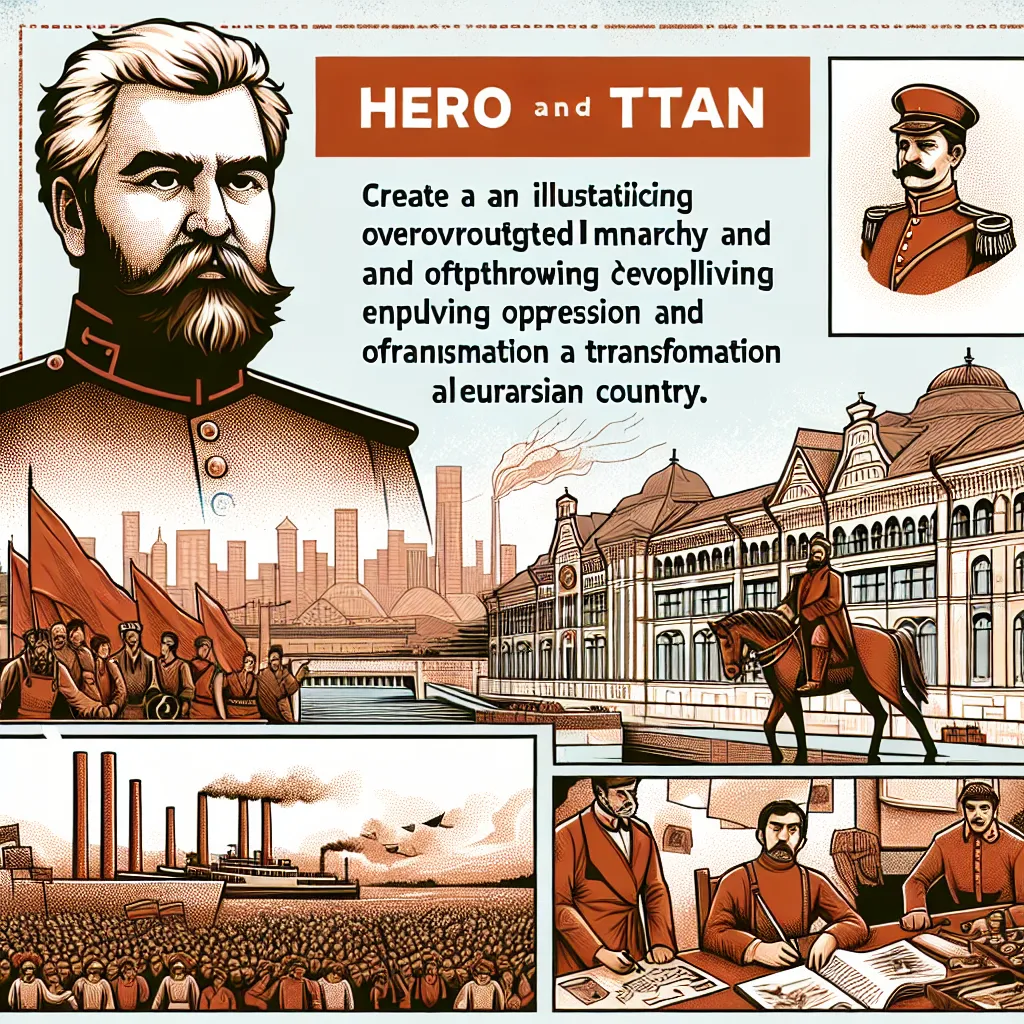Lenin: Revolutionary Hero or Tyrant?
Lenin is one of the most polarizing figures in history. Was he a hero who liberated Russia from a tyrannical Tsar, or a villain who replaced one form of oppression with another? Let’s dive into the twists and turns of Lenin’s story.
In 1917, Vladimir Ilyich Ulyanov, better known as Lenin, played a key role in overthrowing Tsar Nicholas II. This led to the establishment of the Soviet Union, a regime many consider one of the most oppressive in history. Critics argue that Lenin didn’t save Russia but pushed it into another tyranny.
Under Tsar Nicholas II, the masses lived in harsh conditions. Serfdom had been abolished in 1861, but factory bosses treated workers even worse than the old feudal landlords. Long working hours and miserable pay made life unbearable. Though Tsar Nicholas did introduce some worker protections, they were too little, too late. The 1905 peaceful petition turned bloody when Nicholas’s troops opened fire, leading to a half-hearted constitution and a parliament he could dissolve at will.
Lenin’s own brother was executed by the previous Tsar for revolutionary activities. Despite some reforms, Nicholas II continued brutal repressions and dragged Russia into World War I, which drained its resources and cost countless lives.
When the February 1917 uprisings finally forced the Tsar to abdicate, Lenin was in exile. The provisional government that came to power was led by Alexander Kerensky, who continued the war, worsening the already dire situation. Kerensky’s regime fell apart when he tried and failed to stage a military coup, forcing the Bolsheviks to step in. Lenin’s Bolsheviks took control in October, promising peace and land reforms.
However, what followed was anything but peaceful. The Bolsheviks executed many without trial and eliminated Tsar Nicholas’s entire family to prevent any royal resurgence. Lenin’s government also turned on other socialist and anarchist groups, and brutally suppressed revolts like the Tambov Rebellion and the Kronstadt uprising.
Despite these harsh measures, Lenin believed he was building a better future for Russia. That future, however, included famines, purges, and a regime that sent millions to die in camps. Lenin’s successor, Stalin, established a cult of personality and absolute power, deviating far from Lenin’s original vision.
Lenin was dedicated to his cause, living modestly and tirelessly working for his vision of socialism. He did warn against Stalin’s rise, but it was too late. Under Lenin’s influence, Russia transformed from a backward monarchy to an industrial superpower with significant educational and scientific advancements. Many argue that almost everyone had access to basic needs, which few countries could claim at the time.
Yet, the question remains: Could these advancements have occurred without the massive human cost and oppressive regime? History leaves us pondering what could have been if different choices were made or different leaders had risen to power. To learn from the past, we must always be willing to critically examine historical figures like Lenin.






